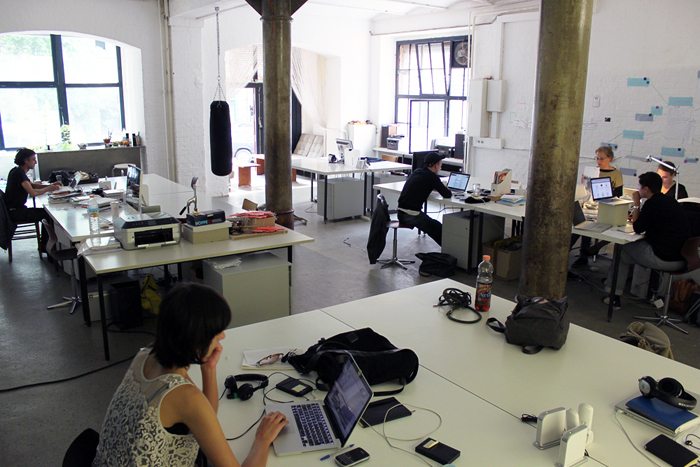By Roger Showley
The San Diego Union-Tribune
WWR Article Summary (tl;dr) One study predicts 44 million Americans will be occupying coworking spaces by 2020.
The San Diego Union-Tribune
The fifth annual Coworking Week, kicking off Monday, aims to show how self-employed people can thrive in a post-pajama environment.
Five coworking spaces in San Diego County will hold free open houses to introduce the concept to people who have left the corporate world or want to escape loneliness at their home office.
Coworking is a variation on the executive office leasing concept, but instead of renting a private office and paying for a common receptionist, coffee pot and copy equipment, coworkers typically work in an open-office setting and share ideas and trade services among one another.
One study predicts 44 million Americans will be occupying coworking spaces by 2020. There are believed to be at least 1,000 San Diegans coworking today.
“I missed having people to bounce ideas off of,” said Felena Hanson, 42, who founded Hera Hub’s three coworking locations after working at home for eight years. “I felt isolated, I lacked creativity working by myself for myself.”
Coworking has gotten a boost since the recession, when workers lost their jobs and started their own companies. They set up shop in a spare bedroom (wearing PJs all day) and decided to professionalize but not in a beige cubicle setting.
The workers form one of the pillars of the so-called “shared” or “gig” economy and suit both single entrepreneurs developing a product and startup companies with a handful of employees not ready to set up permanent, standalone offices.
Coworking entrepreneur, Darin Andersen, 50, started Cybertech and its Nest CoWork hub in Bankers Hill as a way to combine his interest in technology and background in commercial real estate.
He offered three tests for determining if coworking makes sense:
“You find yourself constantly distracted (in a home office). I call it ‘polishing the silver.’
“You are growing your team. You have more than yourself. You feel you’re in a growth phase and want to grow your concept and professionalize it outside your home space.”
“You are tired of working at a coffee shop, where it’s a loud environment and there’s no support.”
Anatoliy Devyataykin, 41, immigrated from Russia after owning various businesses, learned English and earned degrees from Alliant International and San Diego State universities. He came to San Diego after hearing about its surfing culture.
“I wanted to have a business which would give me something that would be exciting to go everyday,” he said.
He opened 6,500-square-foot Co-mmunity Hillcrest last year and now is scouting for a second location.
“We’re a big open space loft with metal beams and big windows, a hardwood floor, high ceilings and lots of greenery,” Devyataykin said.
Coworking spaces offer a variety of membership plans, from only access to social events and workshops, starting at around $70 per month, to full-time dedicated desk space at around $400 per month.
Some locations include private offices as well, but all set aside space for conference and meeting rooms, food and sometimes exercise.
Users typically run companies offering office services or Internet-based applications.
But industrial coworking spaces are beginning to open that rent access to equipment for 3-D printing, wood and metal working and cooking equipment.
Andersen said the trend is solving a problem for landlords who have trouble filling vacant space. Instead of insisting on five- or 10-year leases, they can rent to a coworking company that in turn subleases to week-by-week or month-by-month users.
“I think coworking is a major global trend,” Andersen said. “I think people are looking at new styles of work and coworking is a sophisticated way to get work done and start something small and work up to big.”
Hanson said the coworking model relies on mutual trust among independent but collaboration-minded individuals.
“The next generation doesn’t want to sit in a cubicle and work for ‘the man,’ so to speak,” she said. “That spirit is definitely going to drive entrepreneurship.”














































































































































































































































































































































































